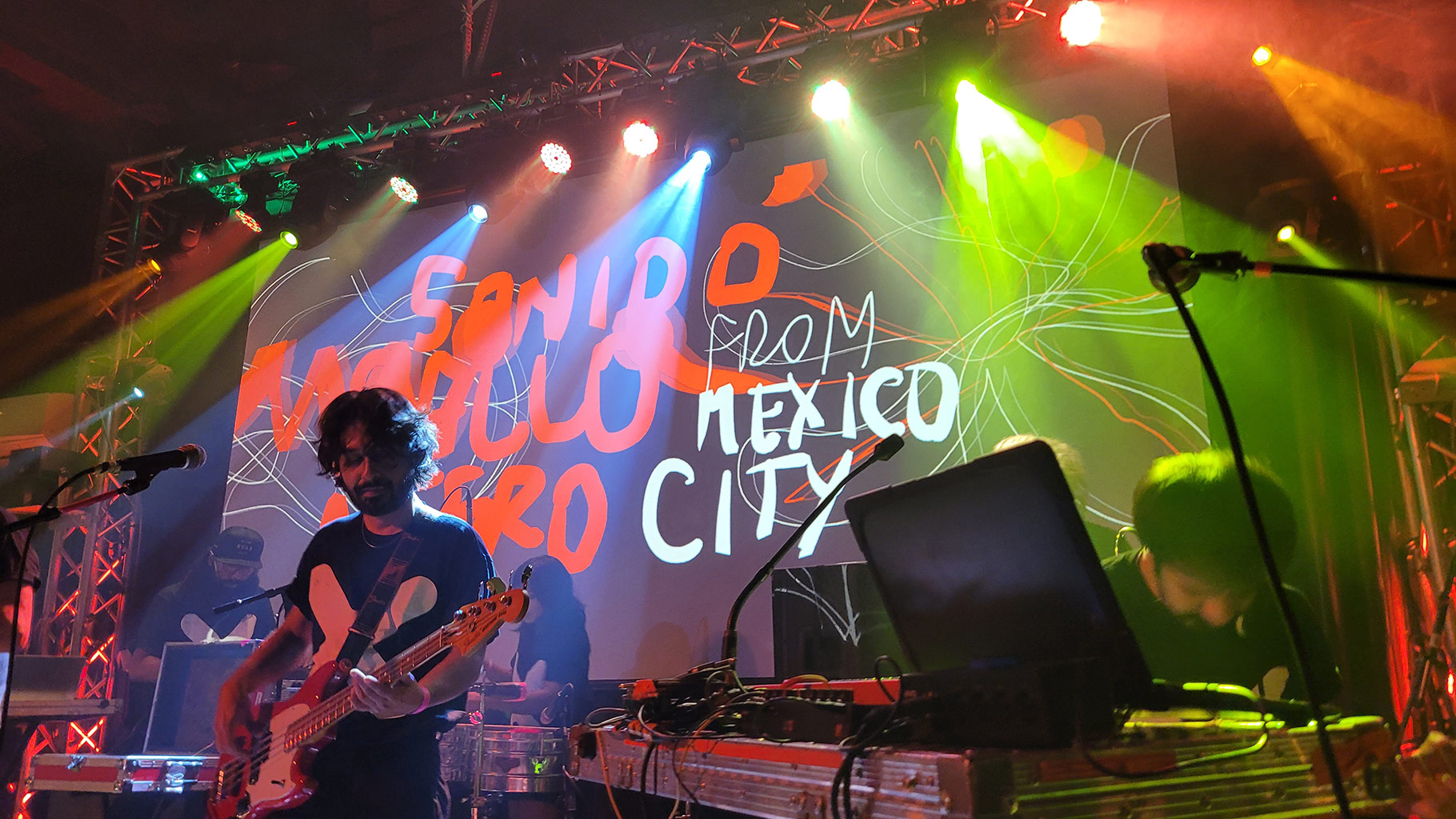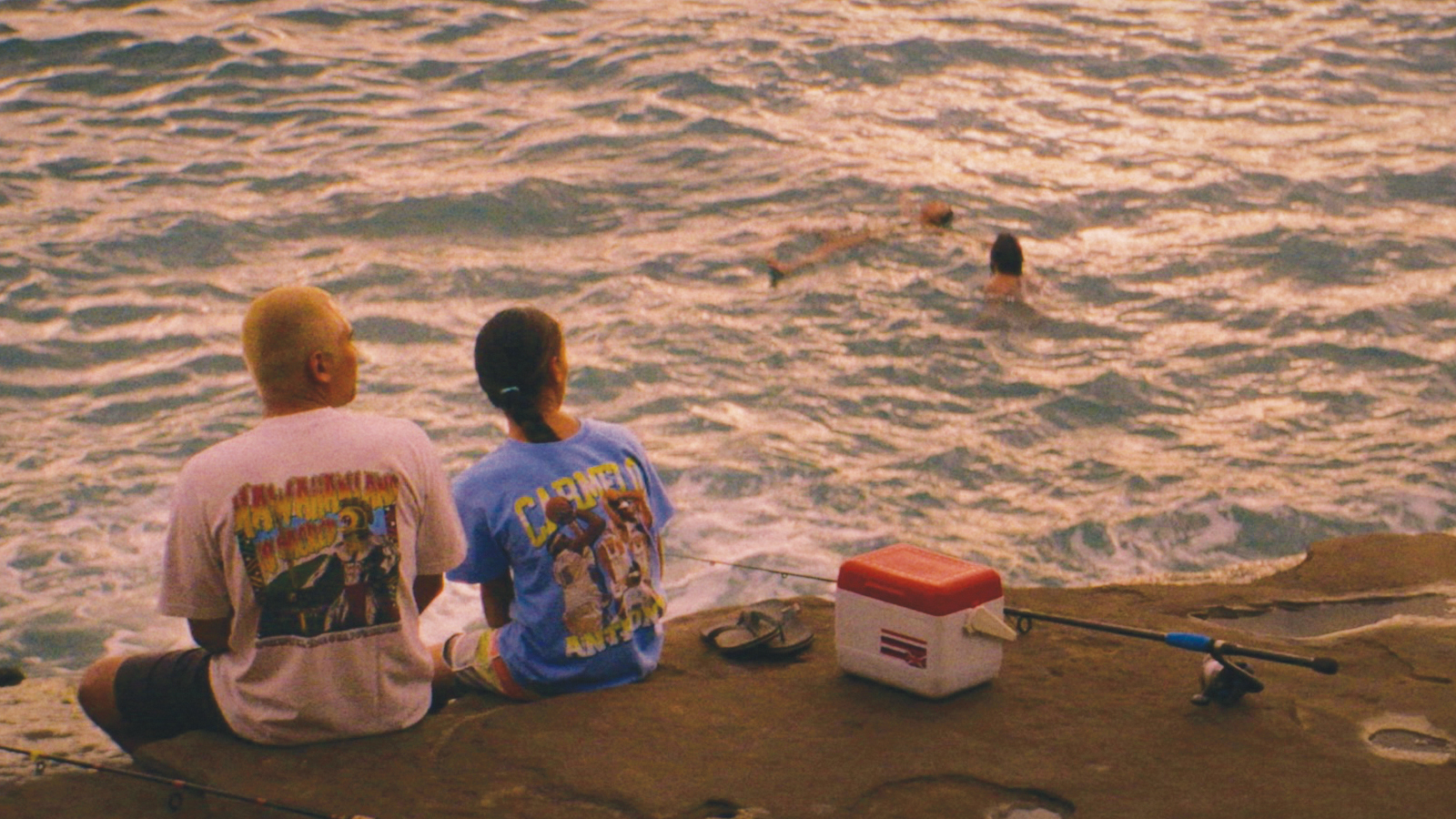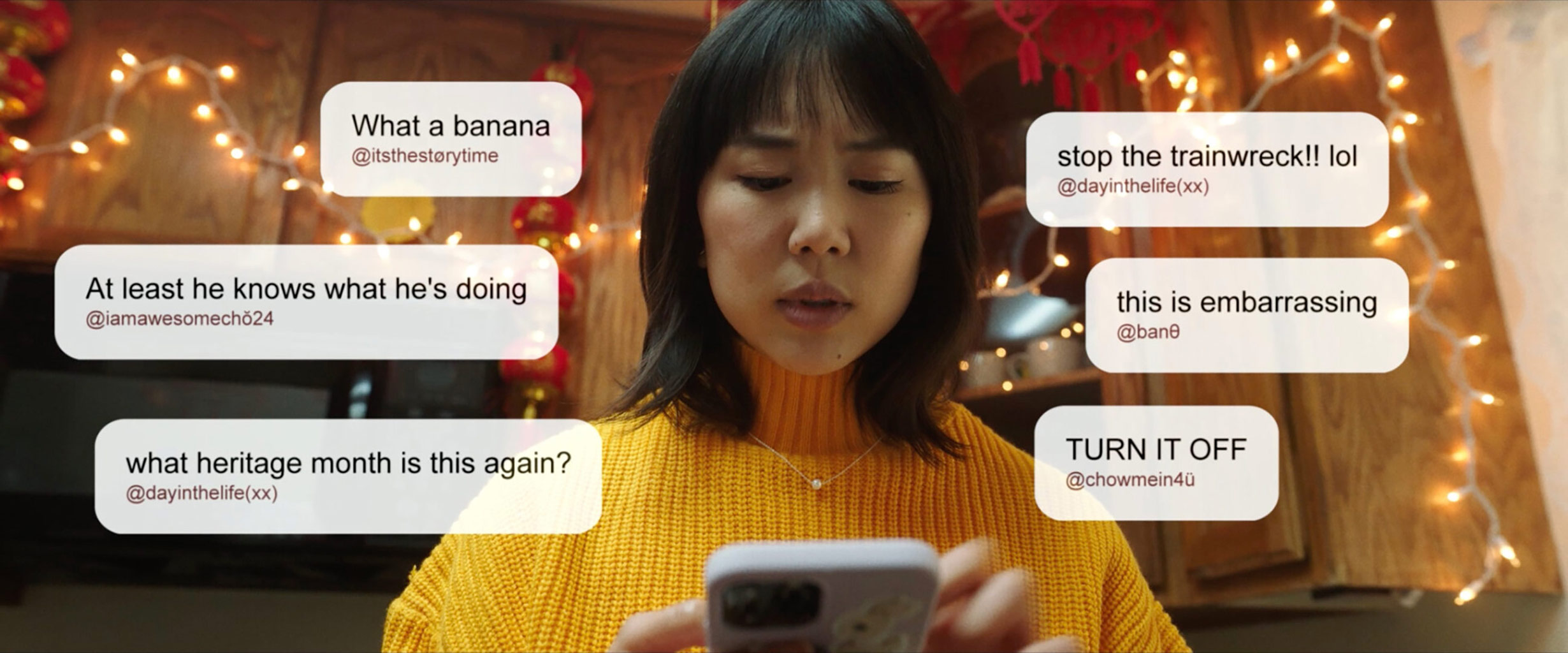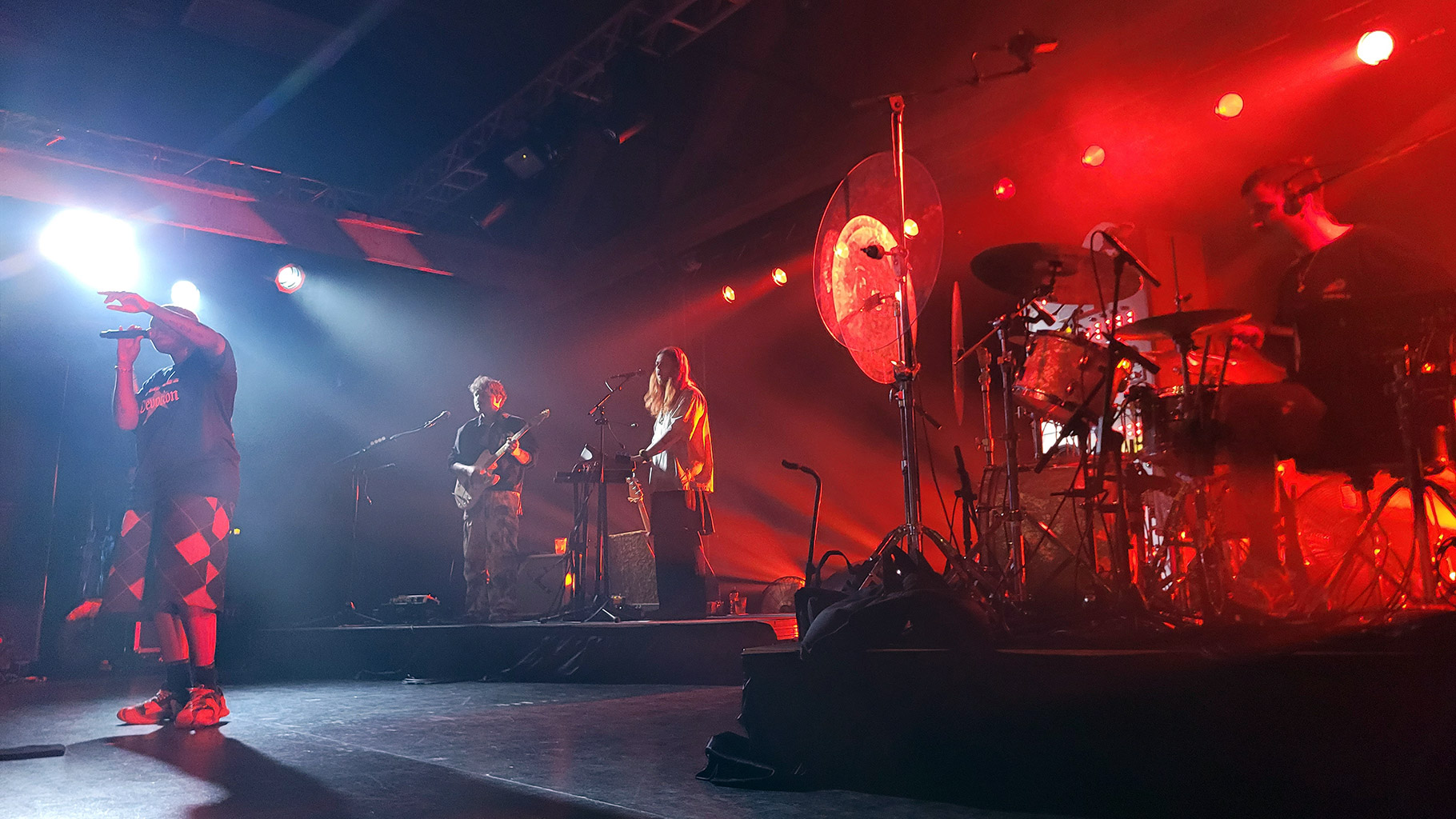
As advertised, her portion of the show started at 9:00pm on the dot. The stage setup was sprawling, with expansive stations for each of Arlo Parks’ three band members, a tall reel-to-reel tape machine towering in the center-back, and a large open space near the front of the stage, which served as a giant pocket for Arlo Parks to move around in. Judging from the backing band’s setup alone, one would have expected their sound to be huge. While it was — especially in the moments where the band was allowed the freedom to show off their very, very present instrumental prowess — perhaps what they actually did most successfully was offer a solid, reliable baseline upon which Arlo Parks could carry her sweet tunes.
An Arlo Parks set, like the recorded music might suggest, is full of gentle swagger. Its vibe is full of the type of tenderness one might find in dancing with oneself or in the company of one’s most intimate friends and partners. This sentiment is made all the more palpable by the collective spirit of the evening’s audience — which proved their knowledge by singing every word, screaming every word, and holding the sustained melodies that Arlo Parks’ tracks like “Blades” are so very known for.
The show began with “Bruises” — the short but sweet opening track on The Soft Machine, then continued on with “Weightless” and “Blades,” from the same album. But it was a few tracks in that the set really began to pop off — not too long after Arlo Parks jumped off the stage into the photo pit, then began climbing onto the metal barricades and singing face-to-face with showgoers. Clearly well-versed with all her material, they had no qualms with loudly singing the same back in return.
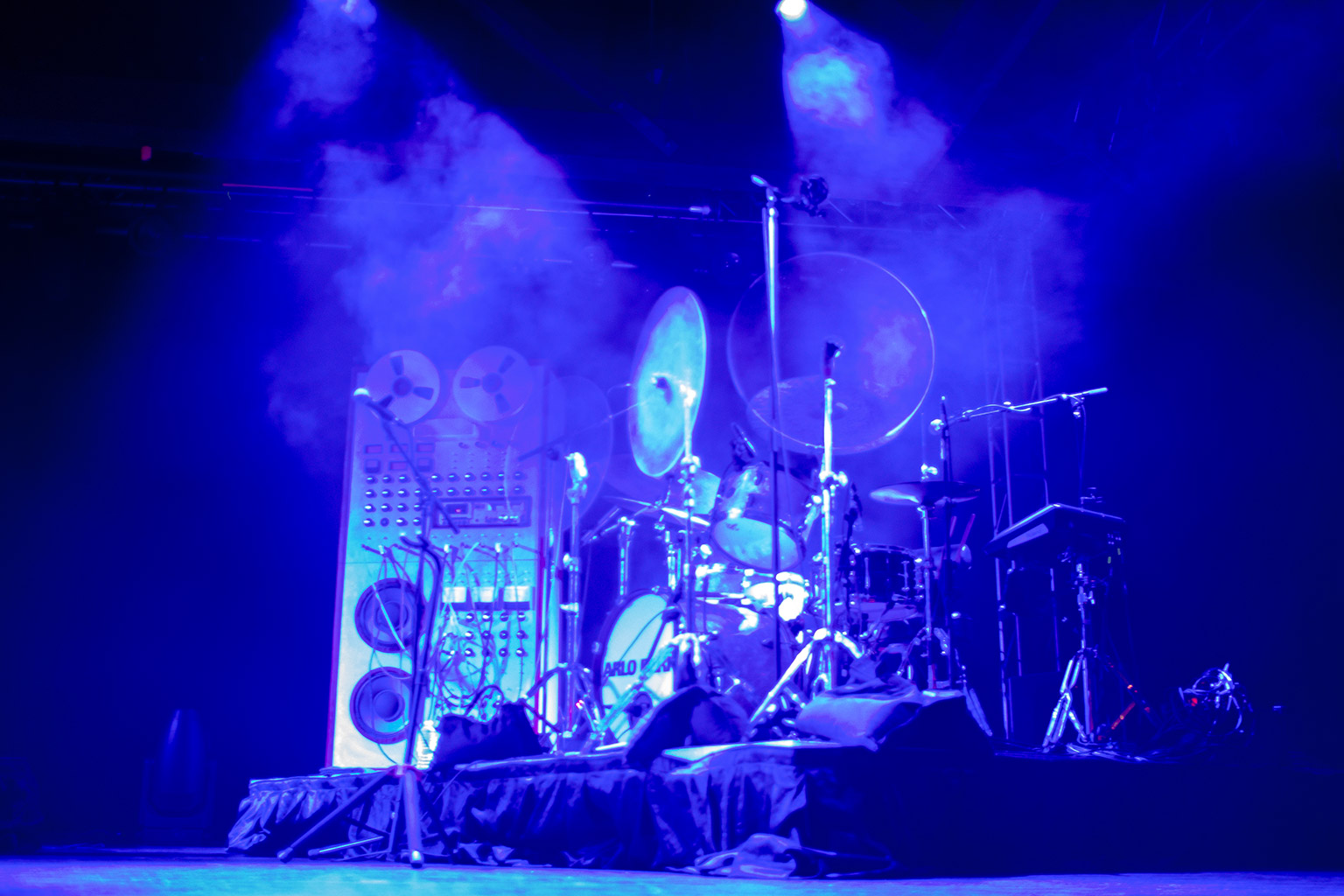
The entire Arlo Parks set seemed to play with rhythm and pace — picking up only to slow down and then dial its tempo back up again. What sounded like a grainy tape loop led into the track “Impurities,” which then began to unfold into what felt like an even slower version of the already relatively slow track. The resulting sound was tripped out and dreamy, creating a moment of dynamism when it was suddenly broken up the upbeat, earworm of a bassline from the track, “I’m Sorry.”
As Arlo Parks quietly recites, “Tried to meditate, fuck the pain away / Tried to move out to LA / Dye my hair lime, be a saint,” it’s easy to get lost in personal reverie, even with the whole room screaming all around. Similarly on the track “Ghost.” As she repeats, “Melt right into you,” with her saccharine-sweet voice, one can opt to stay internal just as easily as one can check back in with the external world.
Arlo Parks’ recorded music is perfect for bedroom-brooding over one’s own thoughts, and this evening felt similar. It also seems the artist is well-aware of this dynamic. While introducing “Eugene” from 2021’s Collapsed in Sunbeams, she says that the song was penned after one of the most tragic love triangles she ever had. Sonically, however, the song is strangely uplifting even if it is heartbreaking. And this is the key. The mood is more than just sadness; it is sadness that also feels appreciative of the love that may have once existed. One that is bittersweet. And in a live setting, maybe Arlo Parks also does you the favor of closing out the sad love triangle song with a wicked guitar solo from guitarist and producer Dani Diodato.
It’s all about the push-and-pull — one which Arlo Parks describes well when she launches into “Dog Rose.” The lyrics recite, “I wanna belong to ya” and evoke a crush of sorts, but this is no straightforward crush. The song is a byproduct of her first trip to the Big Apple, after which she spent three days straight walking, taking in the wondrous city, and appreciating it in the same way that one basks in the feeling of a new crush. Full of wonder — and the potential melancholy of when it is all gone.
Many of the songs, such as “Hurt,” did still manage to elicit furious dancing from the crowd. And kudos to the crowd, indeed, because they truly were embracing the feel-good sentiment of joyfully being in the moment. In fact, some of the dance moves were not necessarily flattering — but such a lack of self-consciousness can be appreciated. The set’s danceability especially ramped up with the track, “Too Good,” perhaps because Arlo Parks prefaced it by joking, “This song is probably the most danceable of all my songs, which isn’t saying much.”
The audience very much got the memo, and that about sums it. An Arlo Parks show can be feel-good and communal, but it can just as easily be pleasingly solitary. She herself showed an understanding of this kind of dynamic when she introduced the track “Black Dog.”
“When I wrote it, I felt alone,” she said, “and now when I sing it, I feel surrounded by community.”
She then dedicated the track to anyone in the audience who was having a hard time. This kind of emotional sensitivity — loving, tragic, heartbreaking, nostalgic, and all other emotions in-between — is what one can expect from an Arlo Parks show. The evening’s multi-generational audience, who seemed to love just these qualities about the artist, got swept up in that flow every step of the way.
Ω


